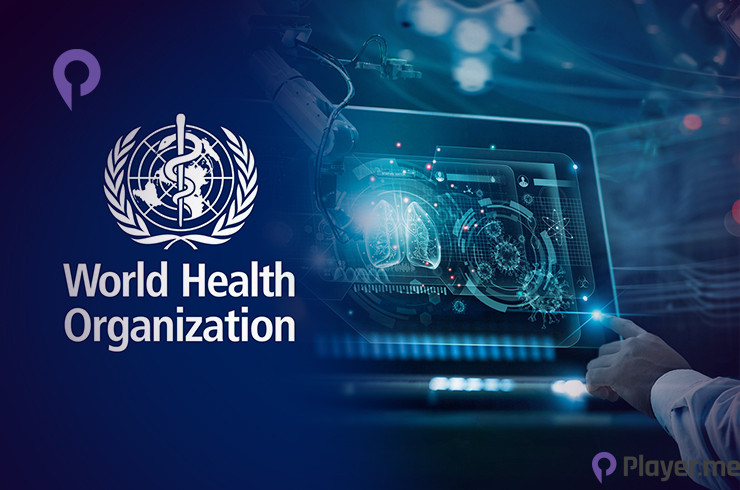In a significant development, the World Health Organization (WHO) issued a stern warning on Thursday about the potential hazards of hastily embracing generative AI in healthcare. While acknowledging the transformative potential of drug development and faster diagnosis, the WHO expressed concerns about the associated risks.
Read more: The Future Landscape: Open-Source Large Language Models (LLMs) in 2024
WHO Issues Comprehensive Guidance on Ethical Use of Rapidly Adopted AI in Healthcare
The WHO has been diligently examining the dangers and benefits presented by Large Multi-Modal Models (LMMs), a new form of generative AI that is rapidly gaining traction in the healthcare sector, with a particular focus on AI ethics and governance. These models, which utilise deep learning techniques and massive datasets, can understand, summarise, generate, and predict new content. LMMs can process various types of data inputs, including text, images, and videos, to generate outputs that surpass the limitations of the input data.
Alain Labrique, the Director for Digital Health and Innovation at WHO, stated during a press conference that some say this mimics human thinking and behaviour and the way it engages in interactive problem-solving.
In response to the escalating adoption of LMMs, the WHO is releasing comprehensive guidance on AI ethics and governance for the fast-growing generative AI technology in healthcare. The guidance comprises over 40 recommendations for governments, technology companies, and healthcare providers to ensure responsible and beneficial use of LMMs for the promotion and protection of public health.
LMMs Are Revolutionising Data Processing in Healthcare
LMMs, at the forefront of AI ethics and governance, have demonstrated a unique ability to accept multiple types of data inputs, such as texts, videos, and images, generating diverse outputs that go beyond the input data’s limitations. The mimicry of human communication and the capacity to perform tasks not explicitly programmed make LMMs stand out. These models have witnessed a faster adoption rate than any consumer application in history, with platforms like ChatGPT, Bard, and Bert entering public consciousness in 2023.

Dr Jeremy Farrar, WHO Chief Scientist, emphasised the importance of AI ethics and governance and stressed the need for identifying and fully accounting for the risks associated with generative AI technologies. According to him, to enhance healthcare, generative AI technologies require careful identification and management of the risks involved by all the stakeholders.
In alignment with the principles of AI ethics and governance, the WHO guidance outlines five broad applications of LMMs in healthcare, ranging from diagnosis and clinical care to scientific research and drug development. However, the guidance also emphasises documented risks, including the potential for producing false, inaccurate, biassed or incomplete statements that could harm individuals relying on such information for health decisions.
Liability Concerns and Broader Risks to Health Systems
As LMMs gain broader usage in healthcare and medicine, concerns about errors, misuse, and harm arise with the creation of new forms of redress when current approaches are insufficient or outdated. The complexity of the AI development process, involving various entities, poses challenges in assigning liability.
The guidance also highlights broader risks to health systems, such as the accessibility and affordability of high-performing LMMs. Incorporating robust AI ethics and governance principles is crucial to addressing these concerns. LMMs can potentially encourage automation bias among healthcare professionals and patients, leading to the oversight of errors or improper delegation of decisions to LMMs. Additionally, like other forms of AI, LMMs are susceptible to cybersecurity risks that could jeopardise patient information and the trustworthiness of these algorithms, impacting healthcare provision.
To ensure the creation of safe and effective LMMs, the WHO stresses the engagement of various stakeholders, including governments, technology companies, healthcare providers, patients, and civil society, in all stages of development and deployment. This involvement encompasses oversight and regulation of these technologies, emphasising the importance of AI ethics and governance. Dr. Alain Labrique, WHO Director for Digital Health and Innovation in the Science Division, emphasised the need for cooperative efforts among governments to effectively regulate the development and use of AI technologies, including LMMs.
Read more: Instagram Co-founders’ AI-Powered News App Artifact Shutting Down After Just 1 Year
Key Recommendations for Governments and Developers
The WHO guidance provides key recommendations for governments, underscoring their primary responsibility to set standards for the development and deployment of LMMs in public health and medicine. Recommendations include investing in public infrastructure, enforcing ethical principles through laws and regulations, and assigning regulatory agencies to assess and approve LMMs.

Furthermore, the guidance advocates for mandatory post-release auditing and impact assessments by independent third parties when an LMM is deployed on a large scale, in adherence to AI ethics and governance. These assessments should include outcomes and impacts disaggregated by the type of user, such as age, race, or disability.
Emphasising Inclusive Design and Governance for Large Multi-Modal Models
For developers of LMMs, the WHO emphasises inclusive and transparent design processes that involve potential users and stakeholders from the early stages of AI development, emphasising the principles of AI ethics and governance. Developers should ensure that LMMs are designed for well-defined tasks with accuracy and reliability while also predicting and understanding potential secondary outcomes.
In conclusion, the WHO’s comprehensive guidance seeks to navigate the evolving landscape of generative AI in healthcare, urging stakeholders to proceed with caution, ethical considerations, and a commitment to the responsible use of technology for the betterment of global health.
Author Profile
Latest entries
 GAMING2024.06.12Top 4 Female Tekken 8 Fighters to Obliterate Your Opponents in Style!
GAMING2024.06.12Top 4 Female Tekken 8 Fighters to Obliterate Your Opponents in Style! NEWS2024.03.18Elon Musk’s SpaceX Ventures into National Security to Empower Spy Satellite Network for U.S.
NEWS2024.03.18Elon Musk’s SpaceX Ventures into National Security to Empower Spy Satellite Network for U.S. GAMING2024.03.17PS Plus: 7 New Games for March and Beyond
GAMING2024.03.17PS Plus: 7 New Games for March and Beyond GAMING2024.03.17Last Epoch Necromancer Builds: All You Need To Know About It
GAMING2024.03.17Last Epoch Necromancer Builds: All You Need To Know About It





